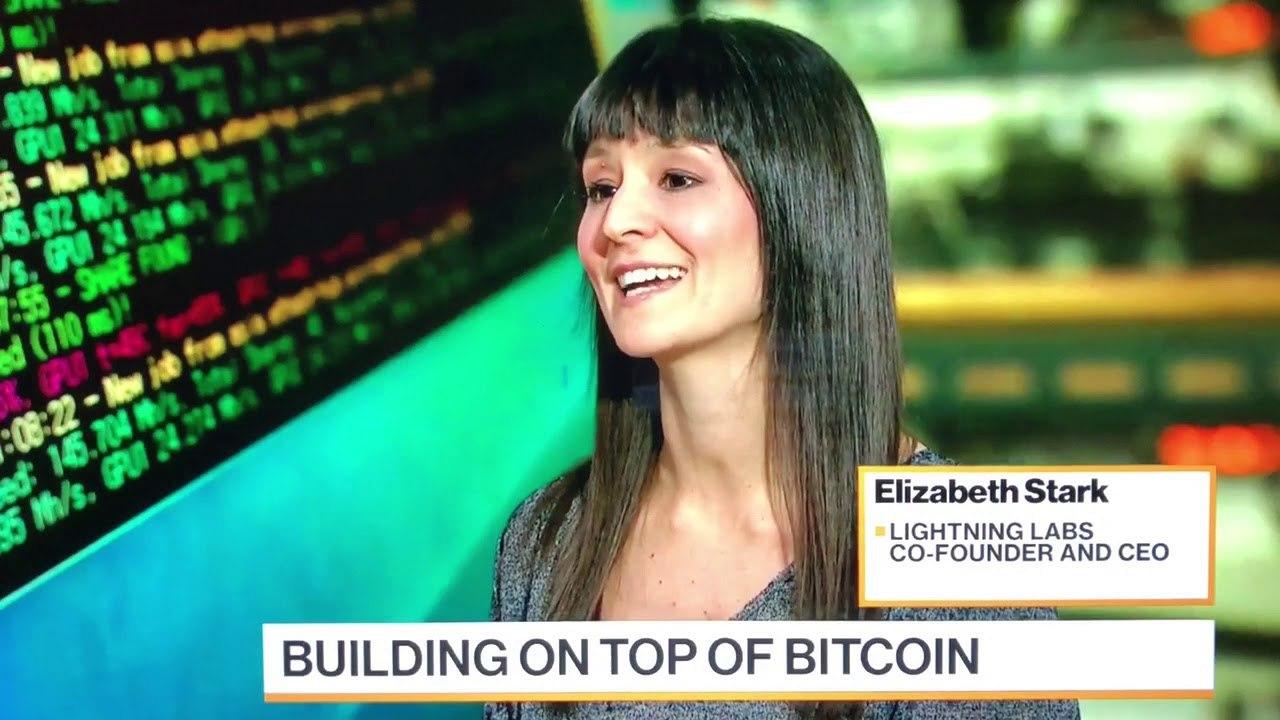Thanks to the efforts of Eric Voskuil and Libbitcoin Institute Vietnam has the honour to host the very first CryptoEcon conference - happening at the end of this month in Vietnam’s bustling capital of Hanoi.
In our series of interviews with the hand-selected speakers leading up to the event we had the opportunity to talk with Roman Snitko, the CTO of Hodl Hodl, a P2P Bitcoin Exchange which entered the gap left by Localbitcoins with a clear focus on Bitcoin and a refusal to collect KYC data from their clients due to the risk associated with centrally collecting highly private identifying information.
Roman also has been active as one of the Co-Organizers of the popular Baltic Honeybadger conference in Riga/Latvia, which has a similar puristic approach in that it does not accept ICO peddlers or random “Blockchain” promoters and focuses on reviving the spirit of the early Bitcoin conferences. Small, intimate but driven by passion and the conviction that this technology is much more important for the future of society than just being a way to make a quick buck.
Q1: Hi Roman! Thank you for taking the time ahead of CryptoEcon2020 to speak with us! Our standard opener question: When and how did you hear the first time about Bitcoin and when was the moment that you got convinced to get involved full-time with Bitcoin?
Roman: So I first heard about Bitcoin in 2011. Hacker News front page was covered with Bitcoin articles, but I somehow ignored it. I was working on other things at the time and just wasn’t interested in switching my attention. Then in late 2012 a friend of mine reminded me about it again, I did start to pay attention to it, but because I hadn’t had any money back then, yet I was a fresh convert, I started going around trying to convince people that Bitcoin was the thing. Nobody believed me, so eventually, later on, I had to buy a little bit myself and I just started slowly gravitating towards work related to Bitcoin and work at companies who were involved with Bitcoin ever since.
Q2: Currently you serve as the CTO of P2P Bitcoin Exchange Hodl Hodl, which launched its services in 2016. Why did you decide to launch the project at a time where Localbitcoins seemed to have a firm hold on the P2P trading market and how has the reception been since then? And what’s coming up next for Hodl Hodl?
Roman: Stupidity? Yes, we had this stupid assumption that eventually Localbitcoins and all other P2P Bitcoin exchanges would start introducing KYC/AML due to the fact that they are custodial (they hold the coins in their own wallets). We came up with a scheme that allowed us to be non-custodial, yet still allow people to trade effectively. Then that stupid thing we thought would happen actually happened and people slowly started moving to our exchange. It was very slow and we’re still not profitable or are able to break even. But it’s getting better.
Q3: You are also active as one of the organizers of the Baltic Honeybadger conference, which made since 2018 a name for itself as being one of the events on the calendar which are true to the spirit of the early Bitcoin conferences. What was your motivation to get involved in organizing the event and why should people attend Baltic Honeybadger in 2020?
Roman: Actually, the first Honeybadger took place in 2017, so we’ve held 3 conferences by now. The reason we decided to organize it was because at the time, it was all about ICOs and shitcoins and all sorts of scams and every cryptocurrency conference you went to, you’d meet tons of people trying to sell you their scams. I remembered how it was back in 2013 (I’ve been to the 2013 San Jose conference, which, I think, was the second Bitcoin conference ever held) and how it felt there and we wanted to reproduce that and maybe improve. Riga was the place I was staying at the time and where my co-founder lives. It is a beautiful country, very inexpensive and it is between Europe and Russia, which meant a lot of people from Europe and ex-soviet countries could easily visit. Even then, we had people flying from Australia to attend the conference in 2017, which was very surprising and flattering and now it is a truly international conference. There are people from all parts of the world and I think Europeans aren’t even in the majority of our attendees.
I think Baltic Honeybadger 2020 is going to be important. First of all, we’re preparing something special in terms of entertainment, which I cannot reveal just yet, due to the uncertainty of whether we can pull this off. But, more importantly, as was the case with the previous conferences, it’s all about Bitcoin: it’s opinions, honest technical, economical and political discussions, but no scams, no shitcoins, etc. We’re going to change the format a little bit this year, because, in all honesty, I think as conference organizers, we need to be improving every year and deliver something people actually want to travel for the 4th year in a row. So it will definitely be worth it.
Q4: CryptoEcon2020 is a conference series with a very specific scope of topics; exploring the impact of economic concepts and models as one of core underlying tenets which make or break Bitcoin. What sparked your specific interest to participate at CryptoEcon2020 and what role may a deeper understanding of these concepts play for Bitcoin business such as yours in the wider realm of the overall Bitcoin ecosystem?
Roman: One name: Eric Voskuil. I love his writing on cryptoeconomics, they’re not easy to read, but you absolutely must read them if you want to truly understand Bitcoin. They’re mostly non-technical in nature, but are also rather complex to comprehend. Even then, his writing doesn’t have an agenda and it doesn’t try to pretend to be some introductory material into Bitcoin. Conversations with Eric have always been enlightening to me and I always get to steal a gem or two from what he has to say. Him organizing the conference that focuses on cryptoeconomics I think is a great idea because as much as I like our own conference, we don’t get to have in depth discussions about Bitcoin economics Eric is aiming to have at his conference. So the moment he mentioned it I said I was in.
Q5: The inaugural CryptoEcon2020 is taking place in Hanoi, the capital of Vietnam which has been the world’s fastest growing economy of the past decade behind India. What are your expectations for Vietnam and where do you perceive the opportunities for emerging economies in regard to Bitcoin?
Roman: Never been to Vietnam (although I’ve been around the South East Asia region a lot), but I heard a lot of things about it and worked with great engineers from there. I think it’s definitely very vibrant and while it might seem like Bitcoin isn’t that big in Vietnam just yet, it wouldn’t surprise me to see it rise there and receiving a lot more attention.
Q6: Your panel at CryptoEcon2020 is going to be about “Survivable Ecosystem”. Can you give us a primer what you see to be necessary to build in order to create such a resilient, surviveable ecosystem?
Roman: Many things. I think one thing we lack that can kind of fail a lot of Bitcoin companies and endeavours is safe, secure and uncensorable means of communication. I’m sorry to say that, but all those attempts to build alternatives to services such as Twitter (Gab) or Github (Gitlab) are still vulnerable to all the same things. Then there are projects that claim to be working on something super-duper decentralized, but also very specific (like Bittube is said to be replacement for YouTube). I think no. I think we need something on a lower level, something very simple, like a protocol and its implementation that’s very simply to use and is applicable to many things (so you can build, say, a Twitter alternative on it, but also Github alternative and so on). I know a few people working on such things, but this will stay off radar for some years I think. For now, we’ll just have to deal with what we have at the moment and certainly not be fooled by any ICO-like scammers trying to build a secure chat messenger on the blockchain.
Q7: Bitcoin is now going in its second decade of existence. After taking the world’s attention by storm in the first ten years, where do you see Bitcoin heading next and what developments you are the most excited about?
Roman: I’m not excited. I was in 2012 because I was an early convert. I am older now, so I’d like to let other people be excited about it. I just like to code my code and work my work and play my bass guitar. But it doesn’t mean there’s nothing exciting going on, “it’s me, it’s not you”, as they say. For all the new people getting into Bitcoin in one way or another, I just want to wish them to stay off the wrong path: DO NOT TRADE. Literally everyone I talked to said they’d have more bitcoins if they simply held. Not a lot of people talk about it, but trading is gambling and gambling can turn into an addiction and ruin your life. I think, due to how easy it is to start trading Bitcoin as opposed to trading conventional stock or currencies, more people can end up losing money and their minds as a result.
But I might sound like I’m trying to scare everyone. Don’t be. Fear is really kind of pointless. Have goals in life and if you’re into Bitcoin try to understand whether it helps you achieve them or not. Goals, or mission, as I prefer to put it, is what makes people keep it up in life in general. I don’t think Bitcoin alone can change the world, but as with many things, it might have a significant positive impact in certain areas of the world or on certain people. And that’s what matters.
If you are looking to attend CryptoEcon 2020:
The space is limited to only about 100 attendees - so if you want to participate make sure to grab your tickets here in time!
If you would like to support the work of the Bitcoin Saigon Community - you can donate some of your Sats to us via our Donation page! Lightning support coming soon :)
 tomo
tomo 
 CryptoEcon 2020 - Interview Eric Voskuil (Libbitcoin Lead Developer)
CryptoEcon 2020 - Interview Eric Voskuil (Libbitcoin Lead Developer)